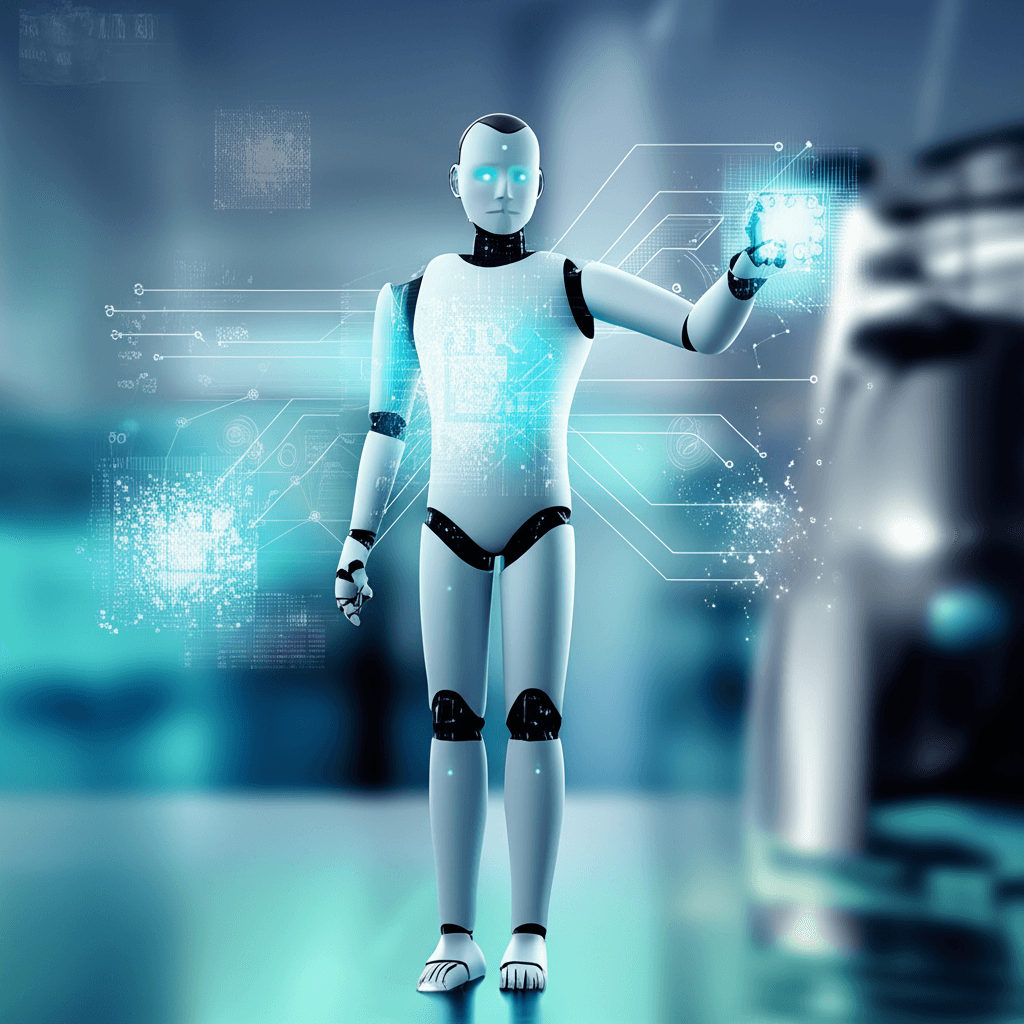Neura, GFT Partnership Unlocks Next Era of Physical AI for Robots
A landmark partnership bridges software insights and physical action, powering next-gen Physical AI for truly autonomous humanoid robots.
July 11, 2025

A landmark partnership between German cognitive robotics manufacturer Neura Robotics and global IT and software firm GFT Technologies is set to accelerate the development of "Physical AI," a new frontier in artificial intelligence that aims to bridge the gap between software-based insights and real-world physical action.[1][2] This strategic collaboration will see GFT develop the software platform that will power Neura's next generation of intelligent machines, including their humanoid robot, 4NE1.[1][3] The alliance marks a significant step for both companies, positioning them at the forefront of the rapidly emerging humanoid robotics and physical AI sectors.[2][4]
The core of this partnership lies in the concept of Physical AI, which enables autonomous systems like robots to perceive, comprehend, and execute complex tasks within the physical world.[5][6] Unlike traditional AI models that are primarily trained on digital data and provide digital outputs, Physical AI interacts directly with the real world through sensors and other devices.[7] This allows machines to not only process information but to act upon it, a crucial step for creating truly autonomous systems.[7][8] For robots, this means moving beyond pre-programmed, repetitive motions to become more adaptable and responsive to changing environments.[7][9] Physical AI-enabled devices can reason, prioritize actions, and continuously learn from their experiences without needing to be reprogrammed.[7] This leap forward is made possible by combining cutting-edge robotics with advanced AI algorithms, including machine learning and computer vision, allowing the machines to learn skills through trial and error in simulated environments before applying them in the real world.[6][8]
Neura Robotics, a pioneer in cognitive robotics, brings its advanced hardware and vision for intelligent machines to the collaboration.[3][4] The company has developed a range of cognitive robots that can already see, hear, and sense touch, allowing them to act autonomously and learn from experience.[10] A key product is the humanoid robot 4NE1, designed to move with human-like fluidity and work seamlessly alongside people in various settings, from complex industrial workflows to everyday assistance.[11][12] Standing at 180 cm tall, 4NE1 is equipped with multiple sensors, including 3D vision and force-torque sensors, allowing it to perceive its surroundings with precision.[13][14] Its "Artificial Skin" can even detect touches before contact, enhancing safety during human-robot interaction.[10] Neura's vision extends to the "Neuraverse," an ecosystem where robots can share their learning experiences, meaning a skill learned by one robot can be simultaneously acquired by all others on the network, fostering rapid innovation and efficiency.[10][15]
GFT Technologies will provide the crucial software expertise to bring Neura's hardware to its full potential.[3] As a global digital transformation company with extensive experience in data, AI, and high-performance architecture, GFT is tasked with developing the software platform for Neura's next generation of Physical AI.[1][15] This partnership is a strategic move for GFT, marking its entry into the dynamic robotics sector.[3][2] The company's track record in creating complex software for highly regulated industries like banking and insurance was a key factor in their selection.[3][2] GFT's role will be to engineer the responsible AI-centric solutions that will serve as the brains for Neura's robots, translating AI insights into physical execution.[4][15] The successful completion of an initial proof-of-concept for the software platform has already demonstrated GFT's capability to deliver on this ambitious project.[4]
The collaboration between Neura Robotics and GFT represents a significant convergence of hardware and software expertise, poised to redefine the capabilities of intelligent machines.[1] By combining Neura's advanced cognitive robots with GFT's robust AI software platforms, the partnership aims to create a new era of autonomous systems that can learn, adapt, and interact with the physical world in increasingly sophisticated ways.[1][4] This development has far-reaching implications, not just for the manufacturing and industrial sectors, but for everyday life, as humanoid robots become more integrated into society.[3][15] The success of this venture could accelerate the deployment of intelligent automation across various fields, from logistics and healthcare to customer service and domestic assistance, truly ushering in the age of Physical AI.[11][14]